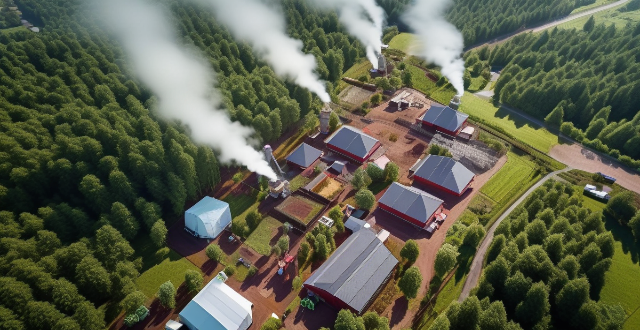Renewable energies enhance energy security and mitigate climate change by diversifying energy sources, providing sustainable and reliable energy supplies, enabling decentralized energy production, reducing greenhouse gas emissions, promoting clean air and water, and conserving natural resources.

Renewable Energies: Enhancing Energy Security and Mitigating Climate Change
Introduction
Renewable energies, such as solar, wind, hydroelectric, geothermal, and biomass, play a crucial role in enhancing energy security and mitigating climate change. This article will discuss the significance of renewable energies in these two aspects.
Enhancing Energy Security
Diversification of Energy Sources
Renewable energies provide a diverse range of energy sources, reducing dependence on fossil fuels. This diversification helps to enhance energy security by reducing the risk of supply disruptions due to political instability or natural disasters.
Sustainable and Reliable Energy Supply
Renewable energies are sustainable and reliable sources of energy. They can be harnessed from natural resources that are constantly replenished, ensuring a stable and consistent energy supply.
Decentralization of Energy Production
Renewable energies enable decentralized energy production, allowing communities and individuals to generate their own power. This decentralization helps to improve energy security by reducing reliance on centralized energy systems that are vulnerable to attacks or failures.
Mitigating Climate Change
Reduction of Greenhouse Gas Emissions
Renewable energies produce significantly fewer greenhouse gas emissions compared to fossil fuels. By transitioning to renewable energies, we can reduce our carbon footprint and mitigate the effects of climate change.
Promotion of Clean Air and Water
Renewable energies do not release harmful pollutants into the air or water, promoting cleaner environments. This is particularly important in combating air pollution and protecting water resources.
Conservation of Natural Resources
Renewable energies rely on natural resources that are replenished over time, conserving finite resources such as coal, oil, and natural gas. This conservation helps to preserve the planet's natural resources for future generations.
Conclusion
In conclusion, renewable energies play a vital role in enhancing energy security and mitigating climate change. By diversifying energy sources, providing sustainable and reliable energy supplies, enabling decentralized energy production, reducing greenhouse gas emissions, promoting clean air and water, and conserving natural resources, renewable energies offer a promising solution to address these pressing issues.